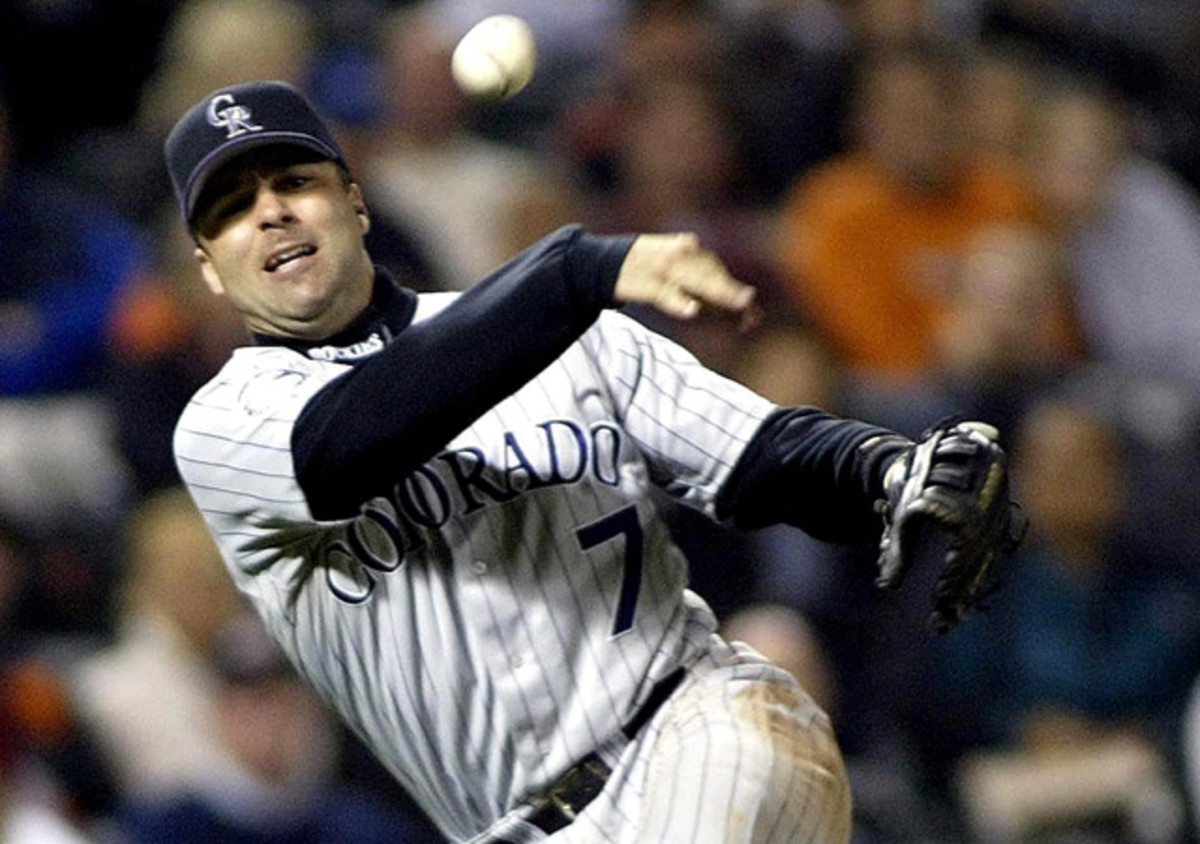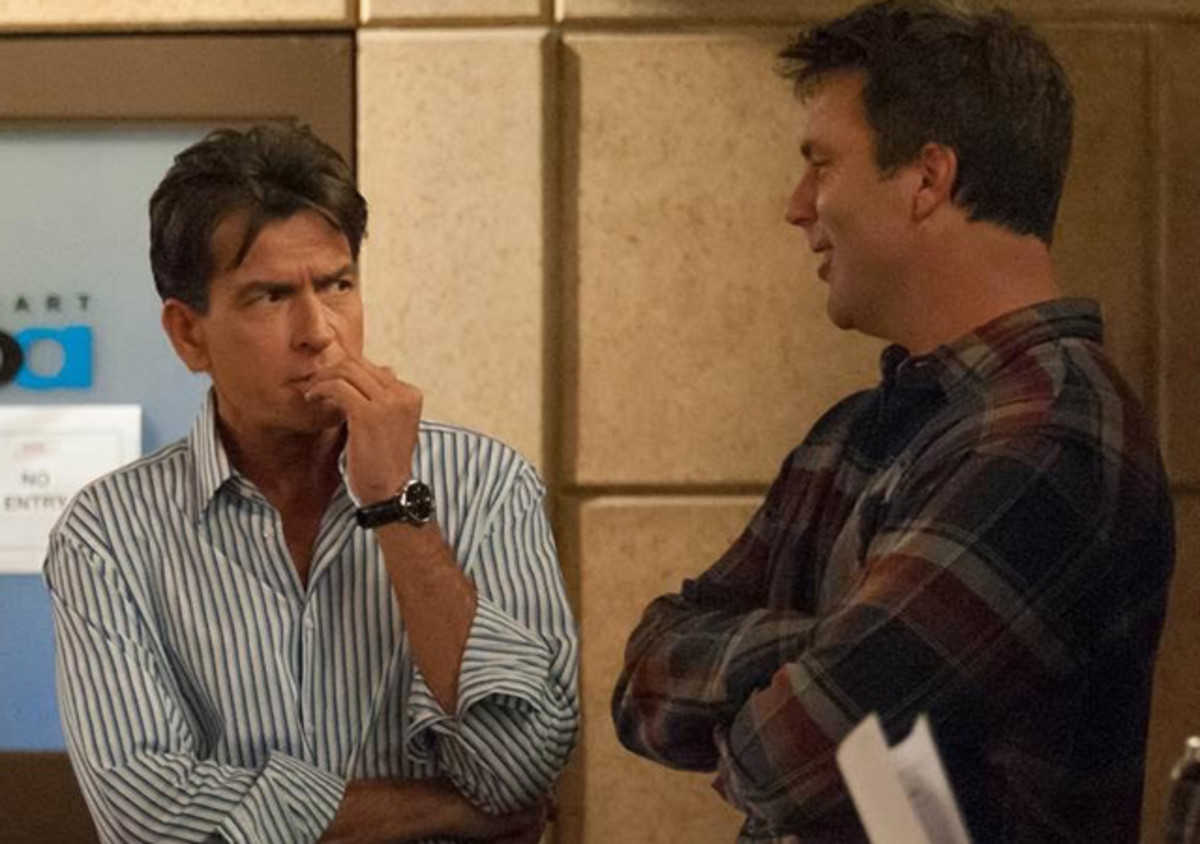How baseball vet Todd Zeile went from run producer to movie producer

Todd Zeile is telling a story about going to Scotland a few years ago with Charlie Sheen in search of the Loch Ness monster. “We stayed in an old castle on the loch, and one night we went out on this tiny wooden rowboat with a bottle of Scotch. I did the rowing. About four in the morning we were out in this channel, looking around, listening to music, telling stories. It was cold and dark. Calm—but kind of ominous,” he says, letting the words hang until he’s asked a question: Were there any sightings? “Well, Charlie will tell you we almost got capsized because of a very mysterious undercurrent.”
It’s a radiant May afternoon in the San Fernando Valley, and Zeile is having lunch on a terrace overlooking a spread of manicured tennis courts at Sherwood Country Club. The tale of his Highlands escapade is more than an explanation of how a mild-mannered major leaguer became bros with one of Hollywood’s occasionally unhinged hedonists. It’s an illustration of how a sense of curiosity and a willingness to try things have guided one man’s post-baseball success.
When Zeile retired from the Mets in 2004, he moved back to the Los Angeles area, where he’d grown up. He had no interest in the traditional baseball afterlife: a gig as a big-league coach or a TV talking head. “Some guys eat, breathe and sleep baseball 24/7, but I always had other things I wanted to do,” he says.
He jumped into real estate, tried his hand as an entrepreneur and dabbled in the local pastime—working as a film and TV producer. He has learned that if there’s one thing as hard as making it in the big leagues, it’s making it in Hollywood. “Taking a broadcast job, spending your days on the golf course—that’s the expected route,” he says. “I went against the grain.”
****

Joe Torre calls Zeile the Forrest Gump of baseball. Over 16 seasons, Zeile played mostly third base or first base for 11 teams, for some of the game’s most successful managers (Whitey Herzog, Jim Leyland, Torre), and, like Gump, he was witness to many notable moments. He was on deck in Toronto when second baseman Roberto Alomar spit on umpire John Hirschbeck. He had eight hits for the Mets during the 2000 Subway Series and was still on New York’s roster the night baseball returned to the city after 9/11.
Zeile wasn’t merely a bystander, though. He was one of the top power-hitting infielders of the late 1990s and eventually amassed 253 homers and 2,004 career hits. In his final game, on Oct. 3, 2004, at Shea, he hit a home run in his final at-bat, becoming only the 40th player to do so. It was a Hollywood ending to a career that lasted longer than anyone expected when Zeile was drafted by the Cardinals as a catcher out of UCLA in 1986. “Joe Garagiola used to come around telling us that it’s a blink of an eye from the All‑Star Game to the Old‑Timers’ Game,” says Zeile. “We’d all kind of roll our eyes. But there’s a lot of truth to it.”
After winning racing's rarest trifecta, Mario Andretti's ventures are thriving
Zeile made his first foray into the business world while he was still playing. During the 2002 season, after he was traded from the Mets to the Rockies, he wondered how best to arrange for his then-wife—U.S. Olympic gold medal gymnast Julianne McNamara—and four kids to visit. He had the idea of starting a company that would charter flights for athletes and celebrities. He partnered with Bill Borgsmiller, the president of a small aviation company, Aviation Consultants Incorporated. When Zeile signed on, ACI had one turboprop and one small jet. Today the company owns 10 aircraft—including Citations and Gulf Streams. Says Borgsmiller, “Nothing rattles Todd. He never wavers, he’s always calm, and as you go through ups and downs, that’s a very good thing. He brings the same value to a business as he did to a ball club.”
While playing for the Mets, Zeile also began to dabble in the movie business. He backed Dirty Deeds, a comedy produced by some longtime acquaintances. Zeile became an executive producer and had a bit part—as a mullet-wearing street bum. “I thought, Hey, this is fun, this is cool, this gives me something to transition into,” he says. “It’s easy to get swept away by the romanticism of it. In Hollywood everyone gets excited, everyone says yes to everything, everything’s great—until it’s suddenly like, Uh‑oh, what just happened?”
Dirty Deeds, which was “made for three times what the budget should have been,” says Zeile, was critically panned, struggled to find an audience and never recouped the money. “It just wasn’t a good movie,” he says. “It was a great education but a costly one. I lost more than I would have paid in tuition if I’d gone to film school for 10 years.”
****

One frigid night in Los Angeles 18 years ago, Zeile was in the Dodger Stadium tunnel warming up his hands before a first-inning at-bat when he heard a voice from behind him: “Dude, can you point me to my seat?” It was Charlie Sheen, who had straggled in from the parking lot. Sheen, a big baseball fan (“he basically sits at home and watches MLB Network all day,” says Zeile), knew who Zeile was, and Zeile was a fan of Sheen’s work. The two shook hands, and moments later, before Zeile stepped to the plate, he blurted to his teammate Todd Hollandsworth, “Dude, I just met Charlie Sheen in the tunnel!” Zeile homered as Sheen was taking his seat, “and to this day,” Zeile says, “Charlie thinks, as the guy who last touched my hand, he was responsible.”
The two bumped into each other a few years later at a movie premiere. They began hanging out and became close friends and creative collaborators. Over the years they’ve played catch alongside that loch in Scotland, on thousand-year-old glaciers in Alaska and while swimming with dolphins in Cabo, as well as at countless ballparks across the country. “People don’t get it,” Zeile says of their relationship. “I’ve never been a partyer. I don’t drink. But for whatever reason, I became a solid influence for Charlie—he kind of loses sight of things sometimes, and I ground him a bit.”
A few years ago, when Zeile was looking for his next project after producing his second film, I Am, a religious-themed movie that screened at 2,500 churches across six continents, Zeile threw out an idea for a show in which a former baseball player is dealing with life after the game. Sheen loved it. He was on his hit series, Two and a Half Men, but CBS had shut down production after Sheen began making outlandish contract demands and daily headlines for his bizarre online rants.
Dan Goldie's troubled youth, tennis career enabled his financial business
When Sheen hit the road on a rehabilitation tour, performing variety shows for packed crowds across the country, Zeile was on the bus with him coming up with bits. During the tour, Sheen was fired from Two and a Half Men, and while pondering his next move, he reconsidered Zeile’s baseball idea. The two retuned it, and it eventually became fodder for Anger Management, Sheen’s show on FX in which he plays an ex–baseball player turned therapist. Zeile was on set every day for the pilot to keep Sheen focused and chime in on ideas, and was a co–executive producer for 80 episodes. The pilot, which aired in June 2012, was a hit: It attracted 5.74 million viewers, making it the most-watched sitcom premiere in cable history. The show had a breathless run—100 episodes over two years—before it ended last December.
Zeile has since been juggling projects. He and Sheen have begun talking about new film and TV (non-sitcom) projects. Zeile is also working with the G2 investment group on an initiative to bring water-purification products to developing countries. (He is spending a week in Africa this summer, meeting with dignitaries there.) He and McNamara divorced in January 2015, and he’s trying to keep up with his children, who range in age from 11 to 21. At the same time, he’s maintaining a long-distance relationship with girlfriend Kristin Gamboa, the daughter of Brooklyn Cyclones manager Tom Gamboa.
Zeile hasn’t ruled out a return to baseball. He still has friends around the game—he talks all the time to Robin Ventura, who went from his couch to the manager’s chair in Chicago a few years ago—and he knows that an offer that’s too good to pass up could come along.
For the moment, though, he’s still hustling, searching for his big hit, as he did for all those years in baseball. “A part of the reason I took this route was to prove that there’s more to me than being an athlete,” he says. “Things would have been easier if I’d done it the traditional way. But I can say that all this has led to some interesting adventures.”
